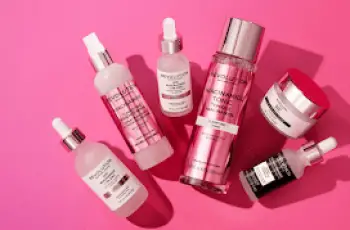
Can Vitamin C be used with Retinol?
Vitamin C and Retinol are probably two of the most powerful and difficult skin care ingredients to use in your daily skin care routine. Vitamin C often oxidizes, especially if it is not stored properly after opening, while Retinol can cause common side effects such as dryness and flaky patches. I don’t blame you if you have questions about the combination of these ingredients, but that is the goal of today’s blog post, as I hope to answer the question of whether or not it is okay to use Vitamin C with Retinol.
Can Retinol and Vitamin C be used together?
Yes, it is okay to use Retinol and Vitamin C in your daily life. There are three ways to combine Retinol and Vitamin C.
Take a look below and decide for yourself which is the most effective way to use it. I also recommend that you seek help from a doctor or dermatologist if you have any further concerns.
Use Vitamin C in the morning and Retinol in the evening.
You will get the best results if you use each ingredient at different times of the day. For example, Vitamin C is best used in the morning, while Retinol or other retinoids should be used in the evening.
By applying Vitamin C in the morning, you provide your skin with a protective layer for the day. This allows the skin to protect itself from the sun’s harmful UV rays, which can cause hyperpigmentation and dark spots on the facial surface. Other free radicals also present a risk of contributing to skin aging, such as: B. pollution, bad weather, and central heating. All of these factors can be combated by the antioxidant properties of Vitamin C product formulas.
If you use retinol in your evening routine, you can specifically combat all skin aging issues, such as fine lines and wrinkles. You’ll also notice that your complexion looks healthy and radiant, as retinol speeds up the skin’s cell cycle.
Leave 30 minutes between using Vitamin C and Retinol
You should use this technique when you’re sure how your skin reacts to using each ingredient at the same time. Wait 30 minutes to ensure that the Vitamin C serum is fully absorbed into the skin, rebalancing the pH of the face. Once the 30 minutes are up, you can apply the form of retinol you’ve chosen. By using each ingredient in this staggered approach, you benefit without burdening your skin. Just pay close attention to how your skin looks and feels. If you experience signs of severe irritation or dryness, switch to a different method of using each ingredient.
Alternating Retinol and Vitamin C
If you find that using both retinol and vitamin C at the same time is too much for your skin, you can try alternating the use of each ingredient on different nights of the week. This way, you can be confident that you are getting the benefits without having to worry about an imbalanced pH or increased skin irritation.
Whichever method you choose, make sure you have properly incorporated both vitamin C and retinol into your skincare routine. If you are unsure how to use vitamin C, or even how to incorporate retinol into your daily routine, check out our blog post on the benefits of retinol for skin care – Why is retinol good for skin?
Should vitamin C be used before or after retinol?
Vitamin C is considered best used before retinol. This is because each ingredient has a different pH level, and enough time needs to pass between uses for the skin to adjust its natural pH and return to normal.
As mentioned before, you can also apply vitamin C in the morning and retinol in the evening. Whichever method you choose, always remember to keep a close eye on your skin’s reaction. If you notice any changes or signs of irritation, stop using all products containing the corresponding ingredient and seek the advice of a doctor.
When should you not use retinol?
Retinol is one of the most potent ingredients in skincare. Not only does this make it a great addition to the skincare routine for anyone looking to combat signs of aging, acne breakouts, and dull complexion. You’ll also find that using retinol can be difficult if you have a dry skin type or sensitive skin prone to skin conditions like rosacea, eczema, etc.
Encourage your skin to build up a tolerance to topical retinol products and always apply SPF 30 or higher daily to protect against UV damage.
How often should I use retinol?
Introducing retinol into your nightly routine takes some time and dedication, especially if your formula contains high or medicinal levels of retinoids.
Apply retinol once a week for the first few weeks. You may experience signs of flaky patches on your skin, redness, and itching. This is a common side effect of using retinol and will subside after a few weeks. You can then increase the frequency of using retinol to twice a week until you can use it every other day.
Although it may be tempting to ignore all the retinoid rules and use your products whenever you want, the side effects can be so severe that you can experience a lot of discomfort, irritation and redness. If you want to learn more about how to use retinol and find the best strength for you and your skin, check out our dedicated blog post on which strength of retinol you need.
Can I use Vitamin C at night?
Yes, you can, but it’s not the best way to get the benefits of Vitamin C. Our skin is one of our largest and smartest organs. As mentioned before, she may change at different times of the day and need help. During your morning routine, your skin needs help protecting itself from free radicals. The antioxidants in Vitamin C can then intervene and fight the damage caused by pollution, UV rays, central heating and other environmental aggressors.When night comes, your skin changes and needs help repairing existing or new damage from the day.
If you have any more questions about using Vitamin C and Retinol together, follow us on Instagram, we’d love to see you!


